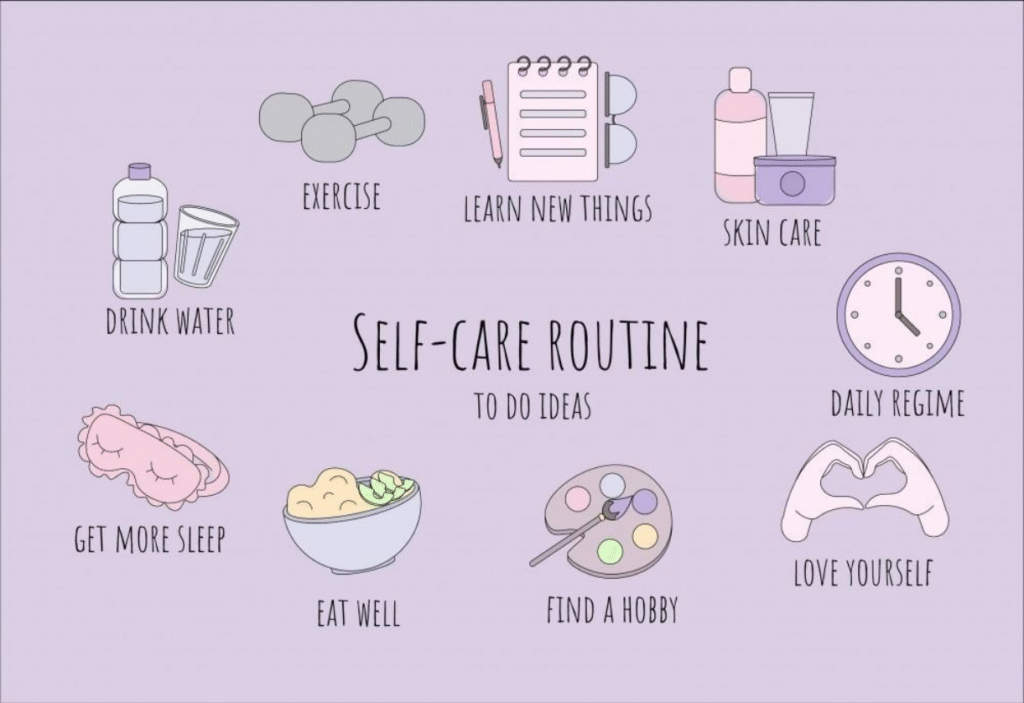WHO ARE THE WELLBEING TEAM?
Hi and welcome to this edition of the newsletter that’s all about wellbeing! Whilst we hope that all students at Mooroolbark College have a journey that is enjoyable, challenging and fulfilling, we know that there are times where they need some extra support to manage their schooling.
Here are some faces that you may already know!
Gill Van Der Ende – Chaplin
Rebecca Herrick – Counsellor
Siobhan Martin – Mental Health Practitioner
Siobhan O’Halloran – Mental Health Practitioner
Sarah McCartin (Coghlan) – Student Services Leader
Those titles may seem confusing, but all you need to know is our job is to support, empower and assist students throughout their time at Mooroolbark College and equip them with the tools to be able to navigate challenges once they have left us.
CELEBRATING THE CONCLUSION OF THE SEMESTER
Taking care of yourself is never more paramount than during times of stress. All students should be congratulated on their efforts to get through this semesters final assessments. One student in particular has risen to the challenge and developed new procrastination proof skills!
“Using a study planner and writing down a to-do-list has been a game-changer. It helps me break down my subjects into manageable chunks and schedule them around my school and sport commitments. I feel more in control and less stressed, which has really improved my focus and made me stress less during the exam period. If I were to give one piece of advice to someone struggling to organise themselves this semester, it would be to reach out to either your coordinator or a wellbeing staff member and give their suggestions a go.”
We hope all students take the time to reflect on their success this semester and take time over the holidays to recharge and refresh. Listed below are some self-care tips to improve your holiday routine.
Enjoy your break!
WELLBEING PROGRAM SPOTLIGHT
Mooroolbark College boasts an array of wellbeing programs that are run for students across all years. We recently touched base with our Year 7’s to see how they were finding the transition from secondary school to high school. Many students have highlights of PE with Mr Brzozek, going on subway walks or conquering the flying fox on camp. It was also common that students were finding parts of secondary school challenging like finding classrooms in a big school, remembering all your teacher’s names and submitting CATs. It was a fantastic opportunity for students to connect with each other, their coordinator and the wellbeing team.
The first step to resilience is building a community that you can rely on to support you when you need help. We hope that all Year 7’s now have a few more people in their corner to assist them!
BEATING THE WINTER BLUES: STRATEGIES FOR A BRIGHTER SEASON
As we settle into the winter months, it’s important to shine a light on a common phenomenon that many of us experience: the winter blues. While the holiday some of us might enjoy the break from the heat that summer brings, the darker and colder days can also take a toll on our mental and emotional wellbeing.
What are the Winter Blues?
The winter blues is a type of low mood that occurs at a specific time of year, usually during autumn and winter. It’s thought to be triggered by reduced exposure to sunlight, leading to changes in our body’s internal clock and levels of certain hormones.
How does it Impact our Wellbeing?
The winter blues can affect us in various ways, including:
- Low mood: Feelings of sadness, hopelessness, or irritability may become more pronounced during the winter months.
- Fatigue: Reduced exposure to sunlight can disrupt our sleep-wake cycle, leading to feelings of fatigue and lethargy.
- Difficulty concentrating: Concentration and focus may become more challenging, affecting our performance at school or work.
- Social withdrawal: The desire to stay indoors and avoid socializing can lead to feelings of isolation and loneliness.
Tips to Overcome the Winter Blues:
While the winter blues can feel overwhelming, there are strategies we can use to lift our spirits and boost our wellbeing:
- Get outside: Even though it’s cold, try to spend some time outdoors during daylight hours. Natural sunlight can help regulate your body’s internal clock and improve your mood.
- Stay active: Regular exercise is a powerful mood booster. Whether it’s going for a walk, practicing yoga, or hitting the gym, find activities that you enjoy and make them a regular part of your routine.
- Maintain routine: Stick to a regular sleep schedule and try to maintain a consistent routine. This can help regulate your body’s internal clock and improve your mood.
- Stay connected: Try to stay connected with friends and loved ones, even if it’s through virtual means. Social support is crucial for maintaining good mental health, especially during challenging times.
- Practice self-care: Take time for self-care activities that help you relax and recharge. Whether it’s reading a book, taking a warm bath, or practicing mindfulness, prioritize activities that bring you joy.
Remember, it’s normal to feel a little down during winter months, but you don’t have to suffer in silence. By taking proactive steps to care for your mental and emotional wellbeing, you can beat the winter blues and enjoy a brighter season ahead.


